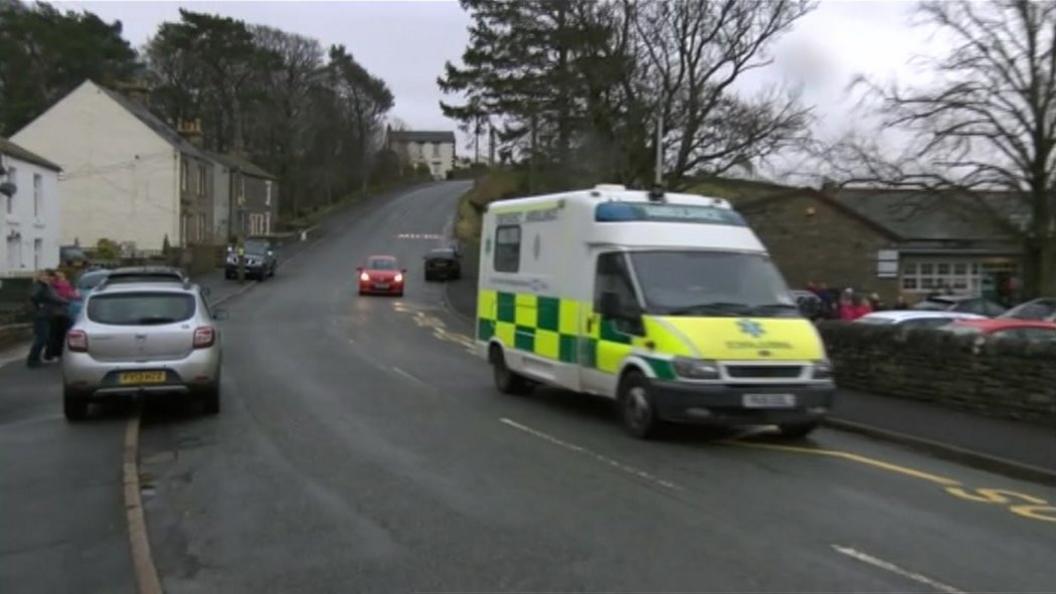Alston residents fight ambulance 'downgrade' plans
- Published
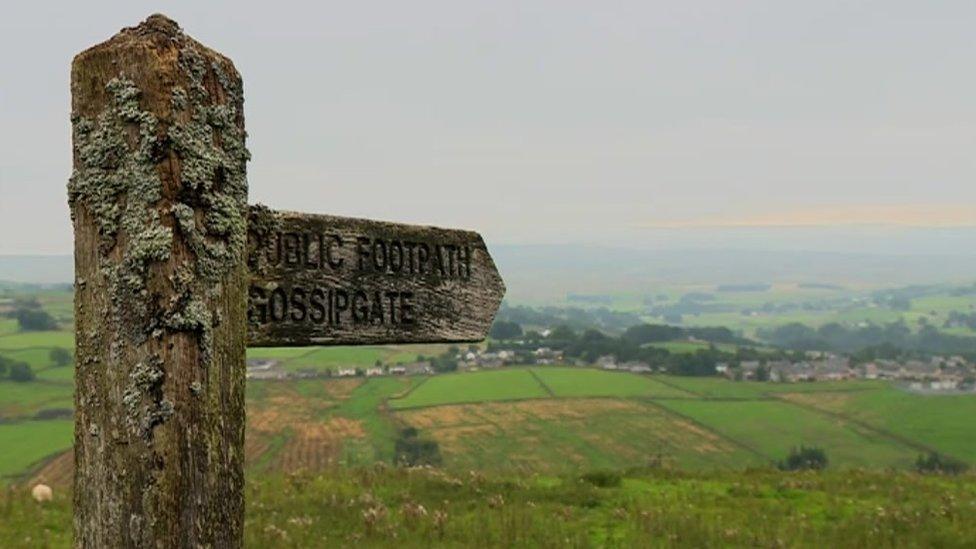
The ambulance covers a rural community of about 2,500 people
Residents in a remote part of the north Pennines are fighting plans they say will downgrade their ambulance service.
North West Ambulance Service (NWAS) said volunteer emergency medical technicians (EMTs) staffing a vehicle based in Alston, Cumbria, no longer met updated training requirements.
It wants to introduce community first responders who would help patients until a standard ambulance arrived.
But campaigners said that would take too long and risk lives.
Alston Moor parish councillor Elaine Grew said the alternative option of training the current EMTs was too difficult as many were retired or had other jobs.
"It's quite onerous on people to actually expect them to do a course which is equivalent to a degree, paying for it themselves, not having a job, for 18 months," she said.
Many were also put off by the fact that, to maintain their skills, they would not be allowed to work exclusively in Alston Moor, she said.
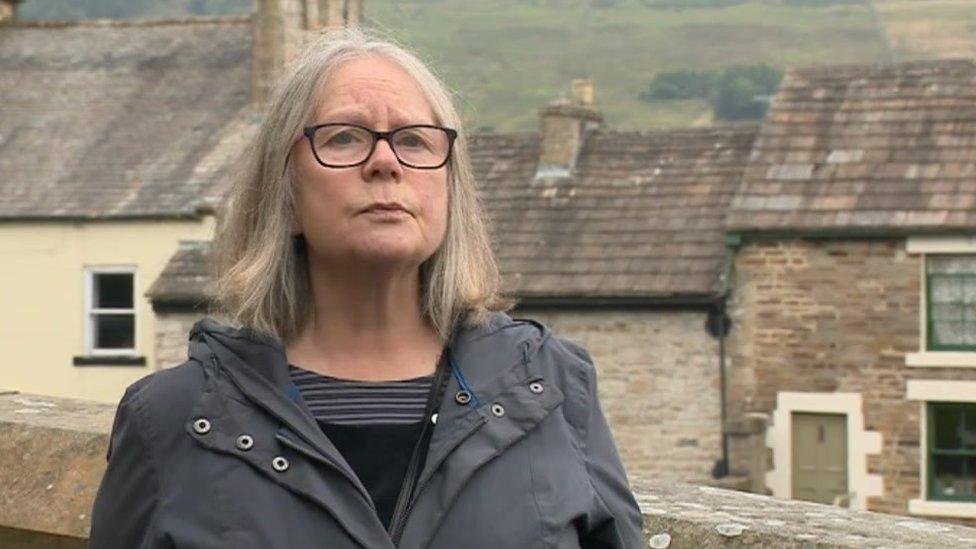
Elaine Grew said the town should have the same service from NWAS as larger cities
NWAS covers seven million people across Greater Manchester, Merseyside, Cheshire, Lancashire and Cumbria and residents say ambulances take too long to get to Alston.
Although other rural areas were also affected, Ms Grew said Alston was "extra rural".
"We have our own weather climate here which can change instantly," she said.
"In winter we often get cut off."
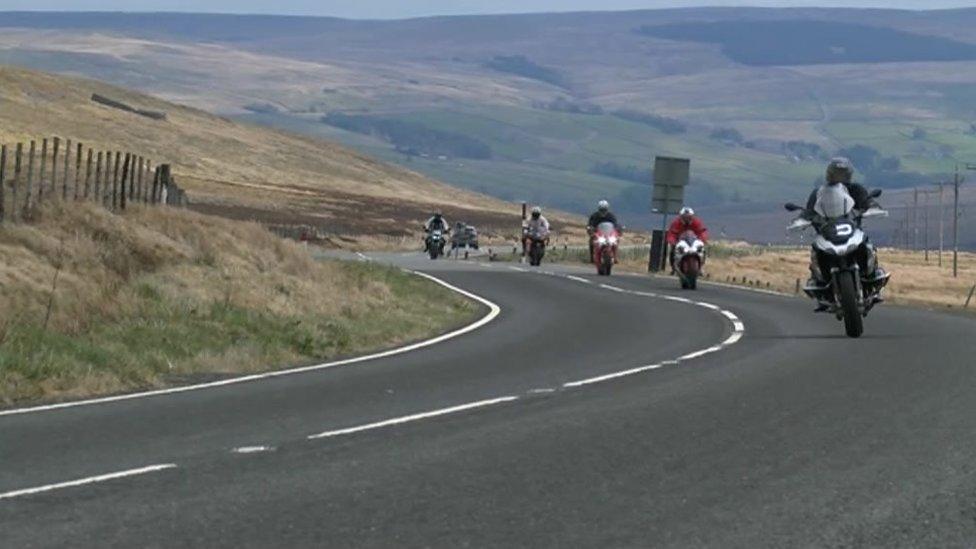
Campaigners say the ambulance is often called out to accidents in an area popular with motorcyclists
NWAS said the Associate Ambulance Practitioner (AAP) certificate, which was not mandatory when the EMTs were first put in post, was now required nationally.
Regional head of service Gene Quinn said: "We know the area is challenging in terms of accessibility, which is why we have considered a range of options, and are considering what we can put in place to maintain safer and more sustainable service."
The service will be meeting councillors on Monday to discuss proposals.
NWAS planned to introduce first responders in 2014 but, after strong opposition, agreed to a service staffed by EMTs.
Of the original cohort, only six remain, but they cannot cover the number of shifts required and are not trained to transport patients under blue lights.

Follow BBC North East & Cumbria on Twitter, external, Facebook, external and Instagram, external. Send your story ideas to northeastandcumbria@bbc.co.uk, external.
Related topics
- Published16 October 2018
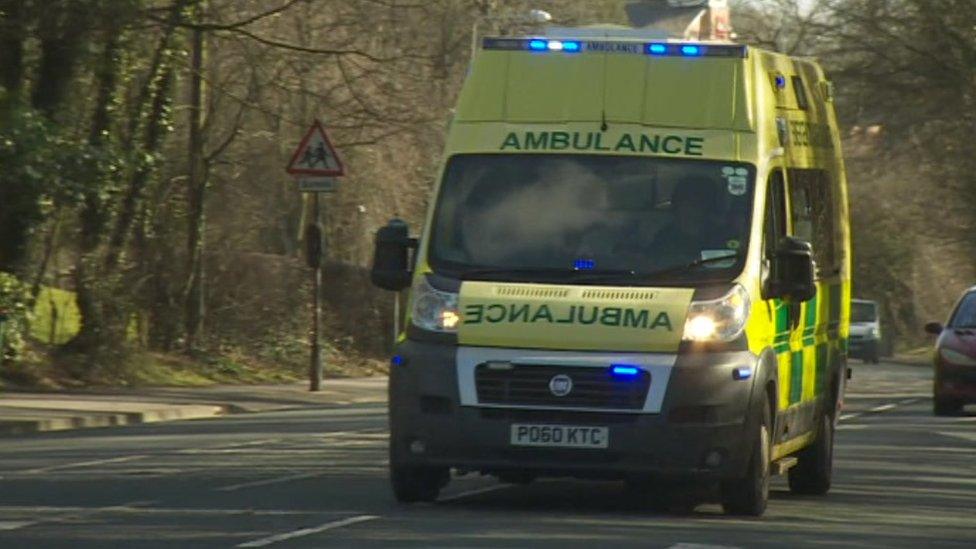
- Published24 January 2014
